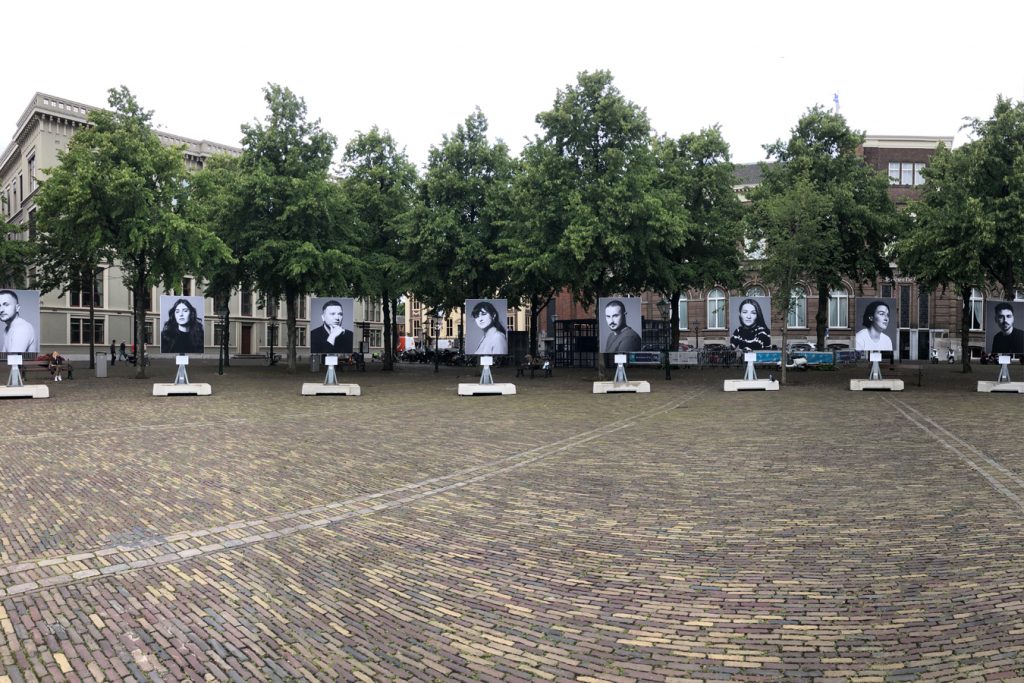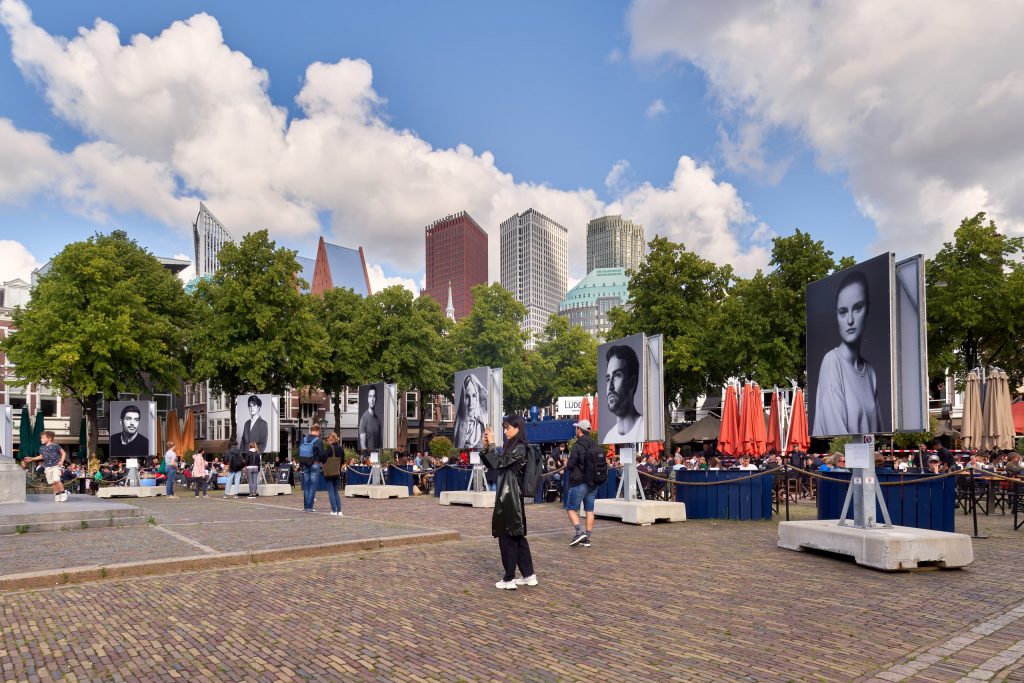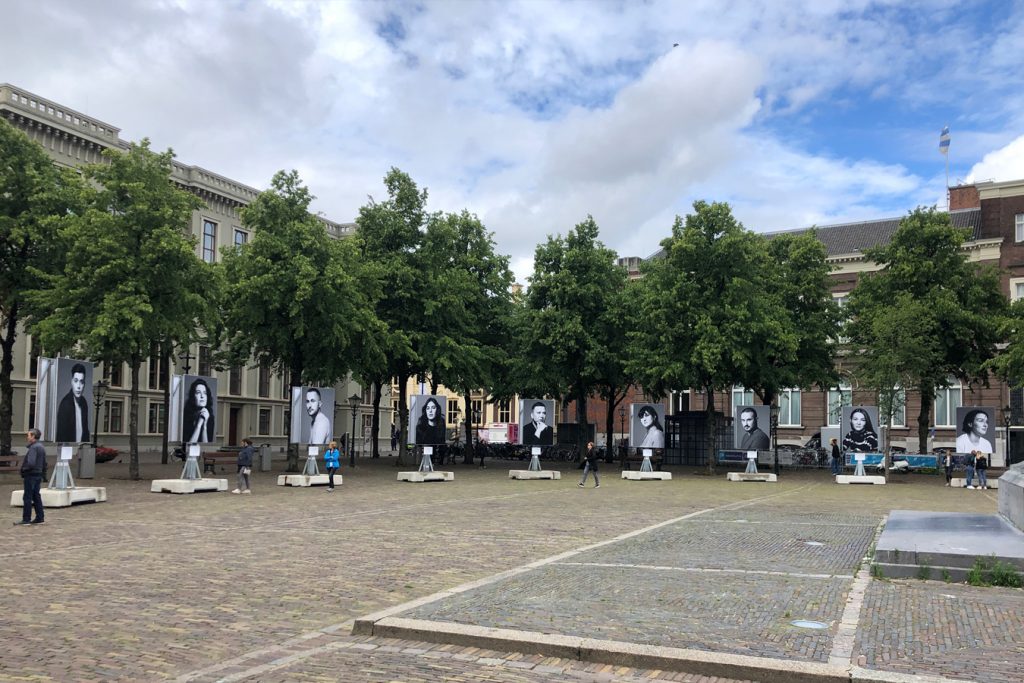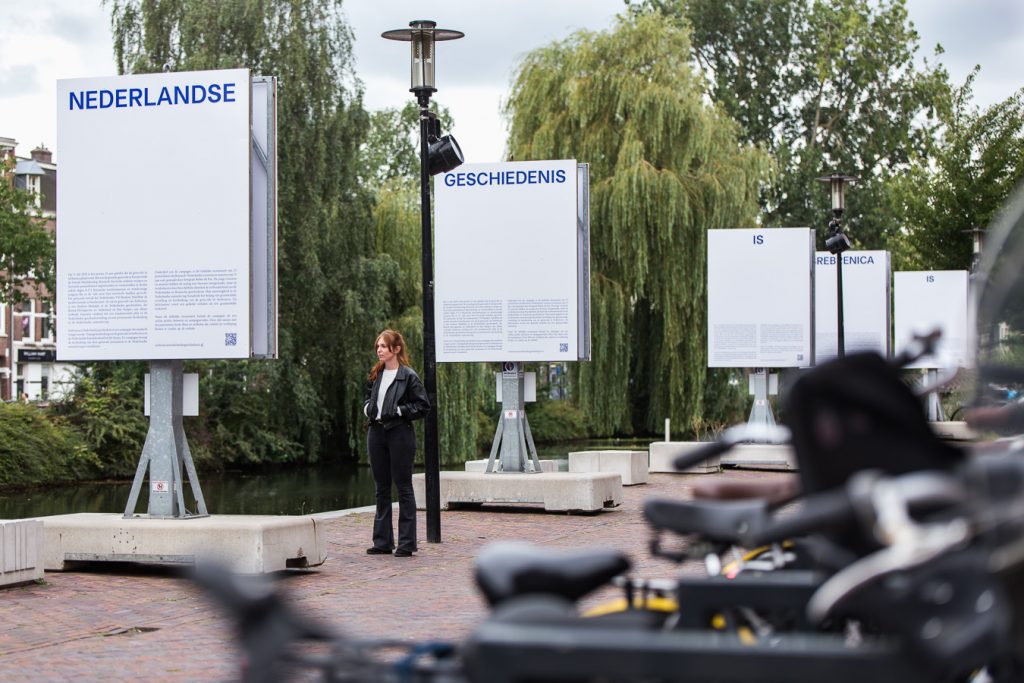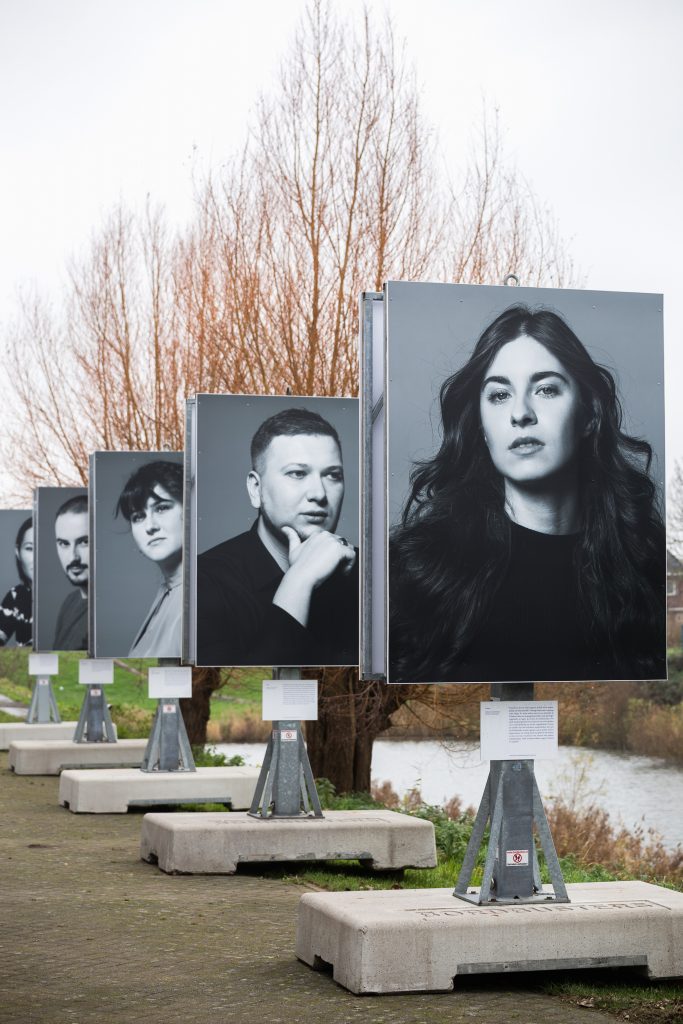On July 11, 2020 it was exactly 25 years since the genocide in Srebrenica took place. More than 8.000 Bosnian Muslim men and underage boys were murdered. The Dutch UN Battalion Dutchbat was supposed to provide protection. This is the largest genocide in Europe since World War II. Srebrenica is Dutch history is a campaign which demands attention for the Srebrenica genocide, the role of the Netherlands and its 25th anniversary in the Netherlands.
What exactly happened in Srebrenica and in which way were the Netherlands involved? It’s a question few people can answer. Yet, the international court has confirmed that a genocide has taken place and the Dutch state is formally held liable for 10%. Taking this into account, why is there still not a single national monument to commemorate this tragedy in the Netherlands? Why is this failed Dutchbat mission no significant subject matter in Dutch education?
Collective Bosnian Girl wants to mobilize involved political and social actors to raise awareness and reflection on this history in various public domains of Dutch society. The campaign Srebrenica is Dutch history aims to achieve the following goals:
- The genocide should have a more prominent place in Dutch history education and should be taught in an inclusive manner.
- The creation of a permanent national monument in The Hague where all citizens can commemorate.
- Structural government funding for the annual commemoration of the Srebrenica genocide in the Netherlands.
The collective remains active until its objectives have been accomplished.
Read the complete manifest here.
Do you agree with these goals?
After the fall of the ‘safe enclave’ Srebrenica on July 11, 1995 nationalist Bosnian Serb military troops and Serbian paramilitaries killed 8,372 Bosnian Muslim men and underage boys in a matter of days. This area was supposed to be protected by the Dutch UN Battalion Dutchbat. Dutchbat, however, failed to do so. To better understand how this could happen, you can find a selection of relevant articles here:
Srebrenica massacre – Explained in video under two minutes – BBC
In July 1995, Bosnian Serb forces killed more than 8,000 Bosnian Muslims who were meant to be under UN protection. How did this massacre happen? And what are its lasting effects?
‘Dutch court reduces state liability for Srebrenica massacre’ – The Guardian
Responsibility for compensation to families of 350 victims reduced from 30% to 10%
‘The Bob Dylan of Genocide Apologists’ – New York Times
Peter Handke, the Austrian writer who was awarded the Nobel Prize in Literature, is an apologist for Slobodan Milosevic.
‘Papers reveal Anglo-French distrust before Srebrenica massacre’ – The Guardian
Archives show British PM was warned France may have made secret deal with Bosnian Serbs
Why Did Ratko Mladic Commit Genocide Against Bosnia’s Muslims? – The New Yorker
Minutes before an international war-crimes tribunal in The Hague convicted him, last week, of committing genocide, Ratko Mladić, the former Serbian Army commander, now a doddering seventy-four-year-old man, mocked the charges against him. Mladić was removed from the courtroom, and the judges formally declared him guilty of genocide, war crimes, and crimes against humanity, for his role in the most monstrous acts committed in Europe since the Second World War.
The people heartened by Peter Handke’s Nobel prize are genocide deniers. – The Guardian
The Swedish Academy’s defence of its controversial award only serves to fuel the rise of far-right extremism.
Are the Lessons of Srebrenica Being Forgotten? – The New York Times
“The Dutch are going to pull out — and leave us interpreters behind!” Amir cried, appealing to his United Nations civil affairs boss and me to force the Dutch to rescue him.
Nobel winner Peter Handke compared my questions about genocide in Bosnia to a “calligraphy of of shit” – The Intercept
The Swedisch academy held a press conference on Friday for Peter Handke, the writer it selected as the winner of the 2019 Nobel Prize for Literature. Handke’s lifetime work includes about a half-dozen books that downplay Serb massacres of Muslims in Bosnia, and his critics regard him as a genocide denier.
The West’s Leftist ‘Intellectuals’ Who Traffic in Genocide Denial, From Srebrenica to Syria
There was no wave of mea culpas from the ‘anti-imperialists’ who denied the Bosnian genocide after Ratko Mladic’s guilty verdict this week. That’s because conclusive evidence, even criminal convictions, won’t stop those war crimes deniers, who are now actively whitewashing Assad’s war crimes
25 years after the fall of Srebrenica there is still no national monument in the Netherlands to commemorate this tragedy. For this reason a temporary monument was built at the Plein in The Hague, the location where the commemoration takes place each year.
Photographer Robin de Puy made 25 portrait photos of Bosnian Dutch women and men of 25 years old. All photographed have roots in Bosnia, but are born or raised in the Netherlands. Their double identity symbolizes the interconnectedness of Dutch and Bosnian history. The temporary monument consists of large format prints of the 25 photos placed in a circle on the Plein. Within this circle the physical commemoration took place on July 11, after which the temporary monument remained there for three weeks and started its journey through other cities in The Netherlands.
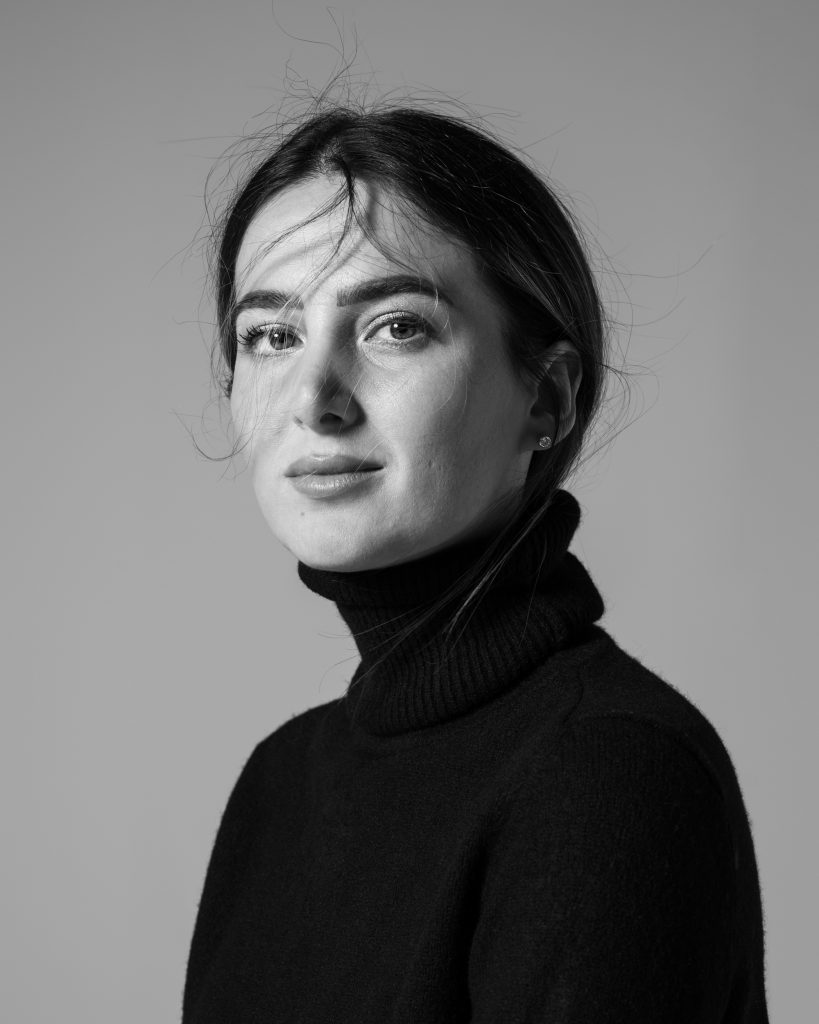
name
Lejla
born in
Srebrenica
lives in
Haarlem
My father and my uncle fled into the woods. Every night I was on the balcony as a baby to call out to my dad. Only a month later, he returned without my uncle. That is precisely why I think: you do not commemorate alone, but together. I often hear from my fellow Bosniaks that they feel they are the only ones who think about Srebrenica. Yet it is not only my history as a Bosnian, but also my history as a Dutch national. If there is no proper commemoration, there is no learning. I would be right for July 11 to become such a national memorial day as May 4.
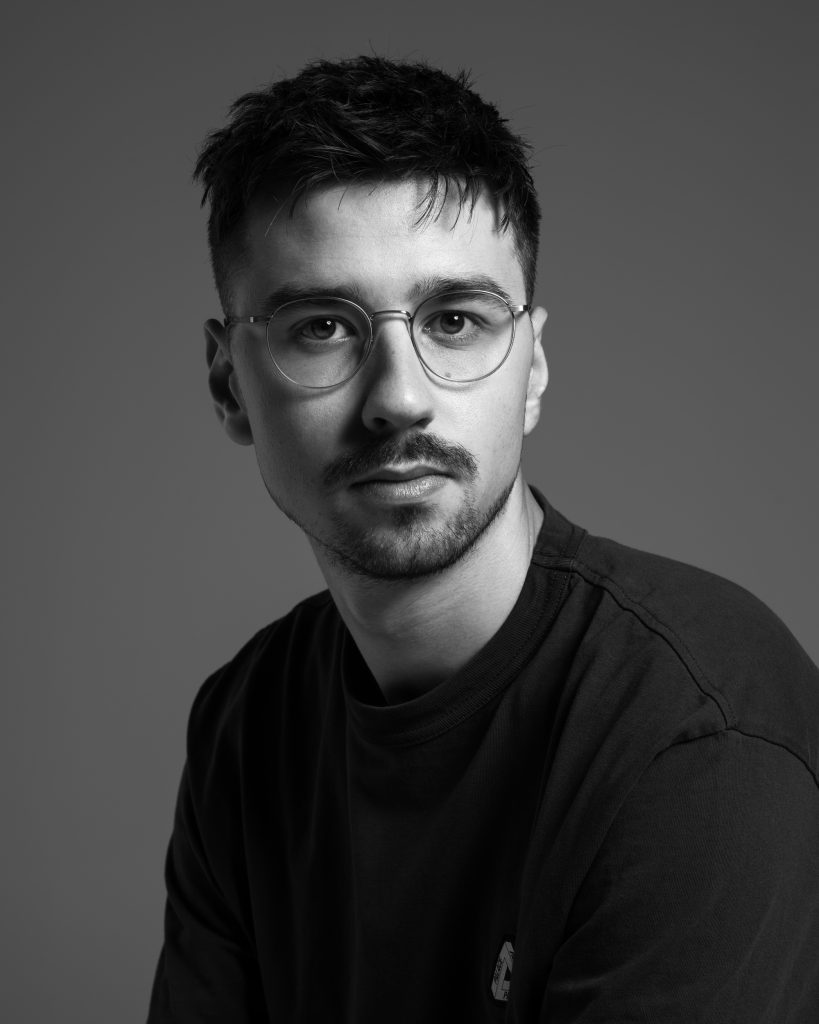
name
Amin
born in
Roermond
lives in
Tilburg
My parents are both from Potočari. They have always taught us what happened, while at the same time protecting us. The more interest we showed, the more they opened up. That's how I do it myself. If someone is really interested, then I am willing to tell. Last year I took three Dutch friends to Srebrenica. We stood there in that cemetery. They had no idea. What happened then was pointless. No one has benefited from it. If it will be forgotten, all would’ve been completely for nothing.

name
Zahida
born in
Srebrenica
lives in
Oss
My father walked the Death March. He almost made it. Then he was murdered. Every summer I hear the stories of my grandmothers and aunts. They all have lost children or partners. I am now 25 and haven’t seen a lot of life yet, but many family members have not even been able to reach that age. That's why I'm here. We know we won't get our loved ones back with it, but we won’t feel respected if we don't even dare to admit the injustice that has been done to us. That is why it is so important that people learn the facts.

name
Zoran
born in
Prijedor
lives in
Tilburg
Prijedor is no Srebrenica, but the story is the same: wanting to expunge an entire nation with an eraser, as if they never existed. I read and write about it because I want to give a voice to the oppressed. I want to break the institutional silence. To build a culture of remembrance. And it is good if someone with a Serbian name like Zoran contributes to this cause. The Bosniaks of my age are very open to my name. Our generation is not so convulsive about that. We owe this to the Netherlands as well. I learned to talk here. I don't put things away.

name
Enida
lives in
Tuzla
born in
Hoorn
As someone who is a Bosnian in the Netherlands and a Dutchman in Bosnia, I think it is very important to participate. None of us want anything like this to ever happen again. I myself have not experienced discrimination, but I always try to stand up for minorities. Because people are still oppressed. People are still being separated from their families. I feel the urgency of that problem and want to make others aware of it. I want to call on everyone to be good to each other.
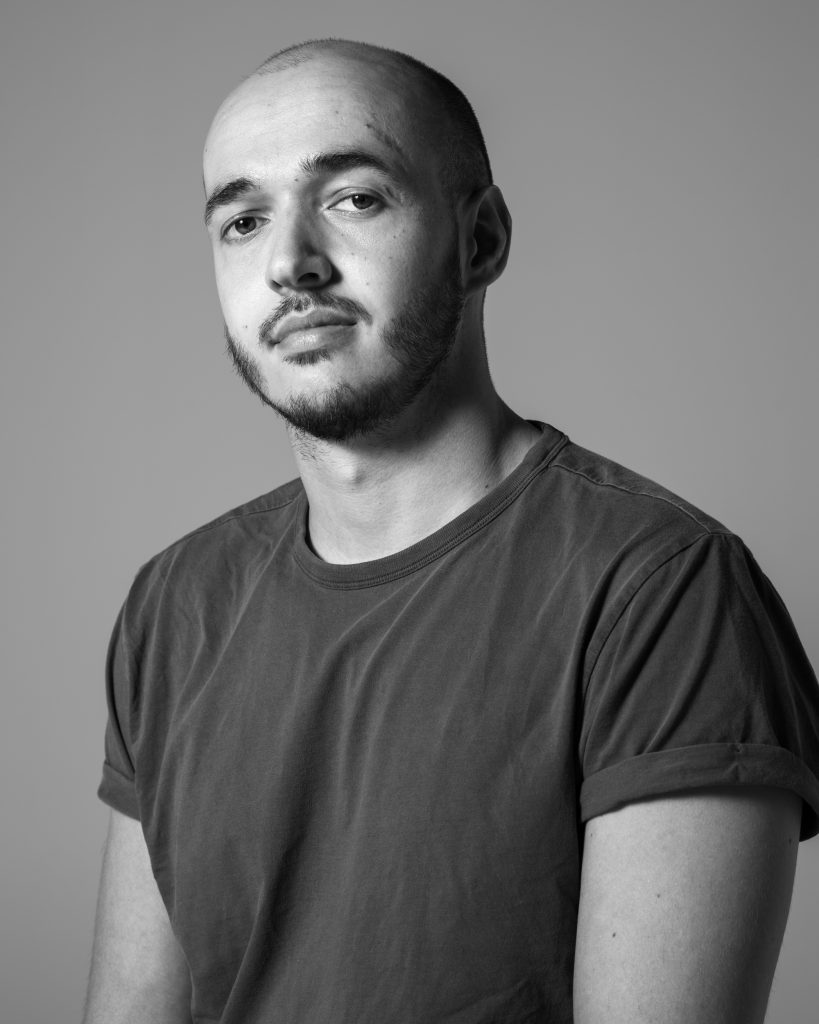
name
Alen
born
Roermond
lives in
Utrecht
All those generations before me have gone to war. And I am the result of that. My education has left me that you never hit first, but if someone hits you, you hit twice as hard. I have never hit anyone, but you can see that you should not try it. That is the Balkan in me. I know the stories of my parents very well. Every time I think about what they went through, I cry. And that will end. The pain stops with me. My children will never feel that pain.
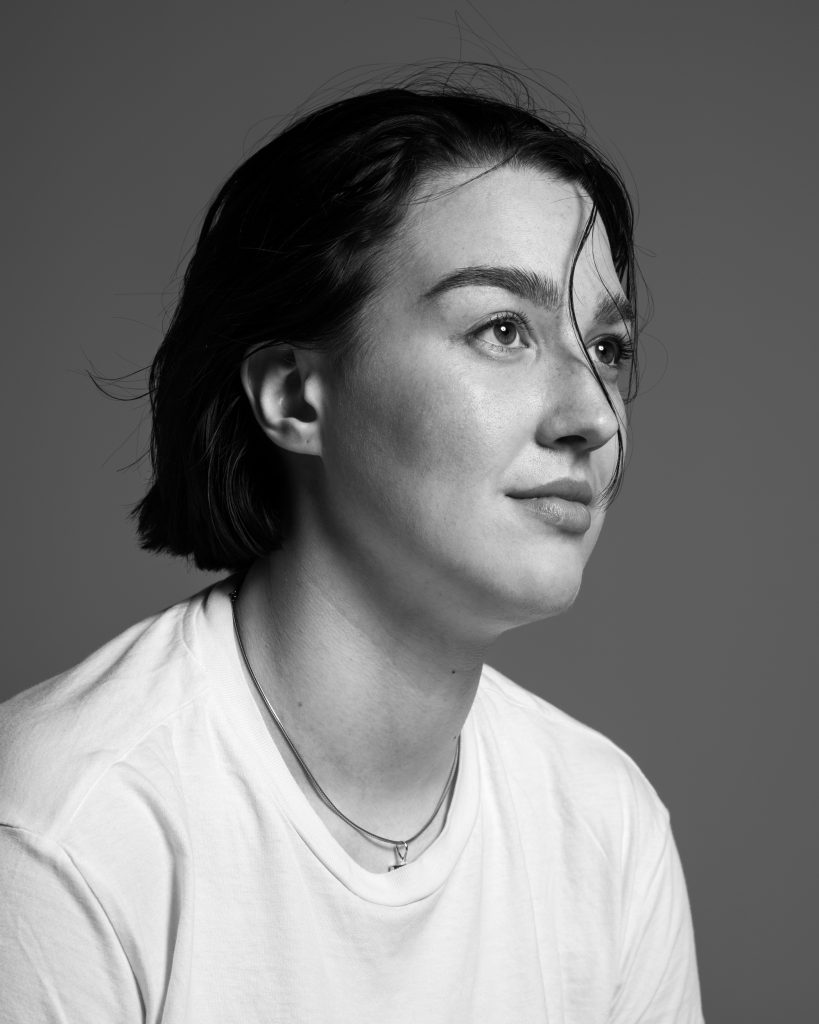
name
Ena
born in
Rotterdam
lives in
Tilburg
Those people are not dead for doing something wrong. Whether you were a good or bad person had nothing to do with it. You could be a surgeon, save twenty human lives and still be killed. My parents were lucky because my little brother at the border screamed so loud that they let them through. Otherwise I wouldn't have been here. That's why I commemorate. Because I don't want other people to feel the same. Refugees from Syria, civilian casualties in Iraq - no one should be allowed to do that.

name
Martin
born in
Ozimica
lives in
Wageningen
My colleagues are also on the Plein. Those men and women with full equipment, heavy vests and armored cars. I am a team leader at the training center of the military police. And I hope to give the students a moral compass. The standards and values , which have been brutally broken in Srebrenica. My family went through a war. And the disadvantage of Bosnians in the Netherlands. But I learned from my parents: treat everyone equally. Dare to look at yourself in the mirror to think about what you can do to prevent something like this from ever happening again.
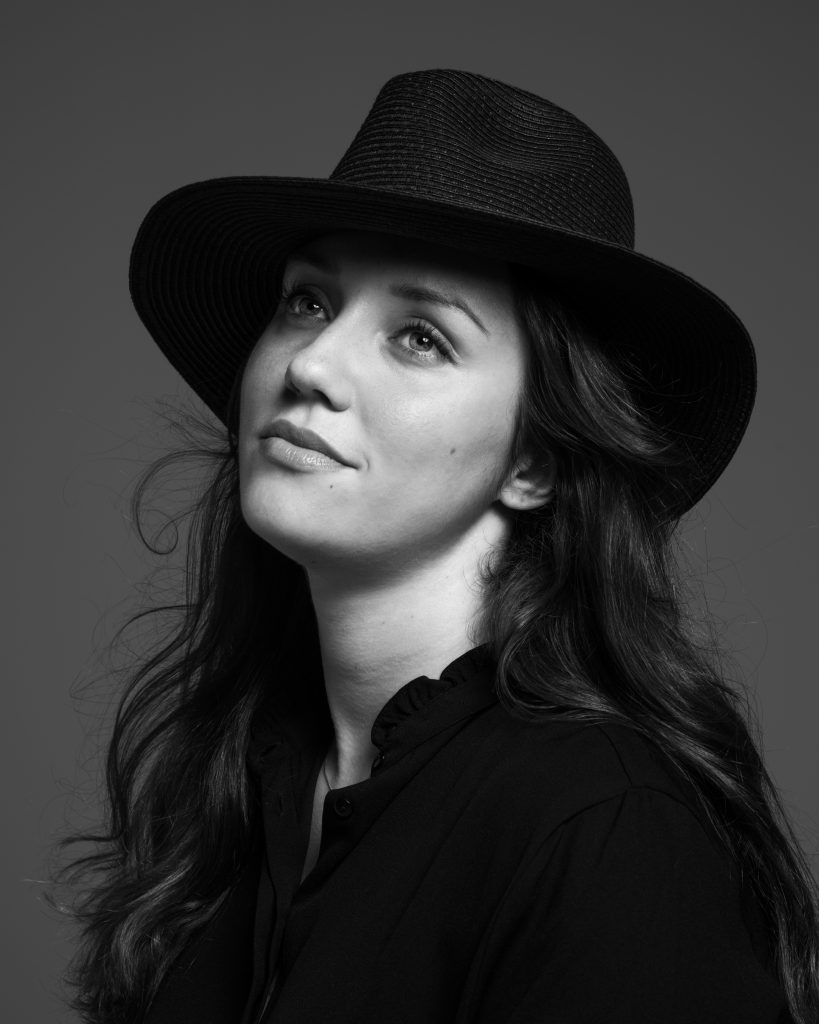
name
Zana
born in
Assen
lives in
Smilde
We are never in the news. How many Bosnian youth are there actually in the Netherlands? We just don't stand out. But I am standing here, with my photo, despite everything my parents have been through. We have been given the opportunity to grow here. Everyone deserves that opportunity. I am proud of my history and my background. I took a lot of that with me. My parents' culture also adorns me.
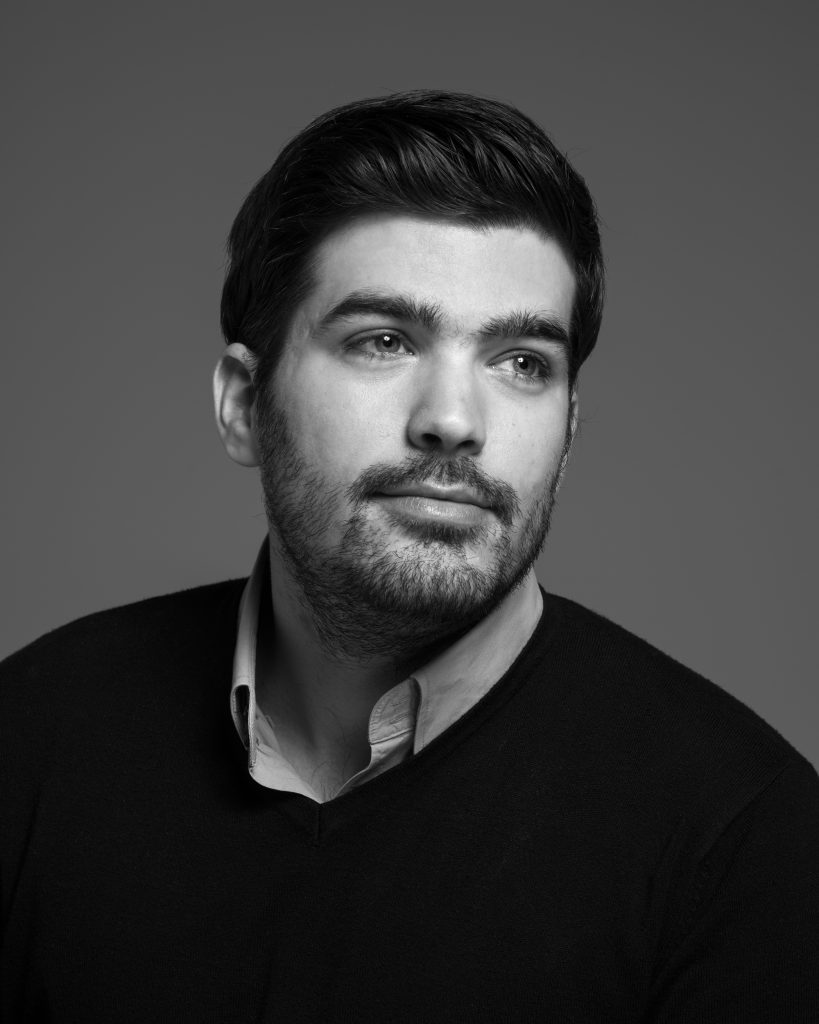
name
Adi
born in
Breda
lives in
Breda
For 99.9% I commemorate for the people we have lost. But for the remaining 0.1% I am also standing there to prevent it from happening again. As part of my research, I have studied all the Dutch NIOD reports. We also commemorate the mistakes made by Dutchbat, the Bosnian government, the Dutch state and the United Nations. Dutchbat was sent off with a carte blanche. They had to do more than they could handle. This is something you can’t forgive yourself as an international community.
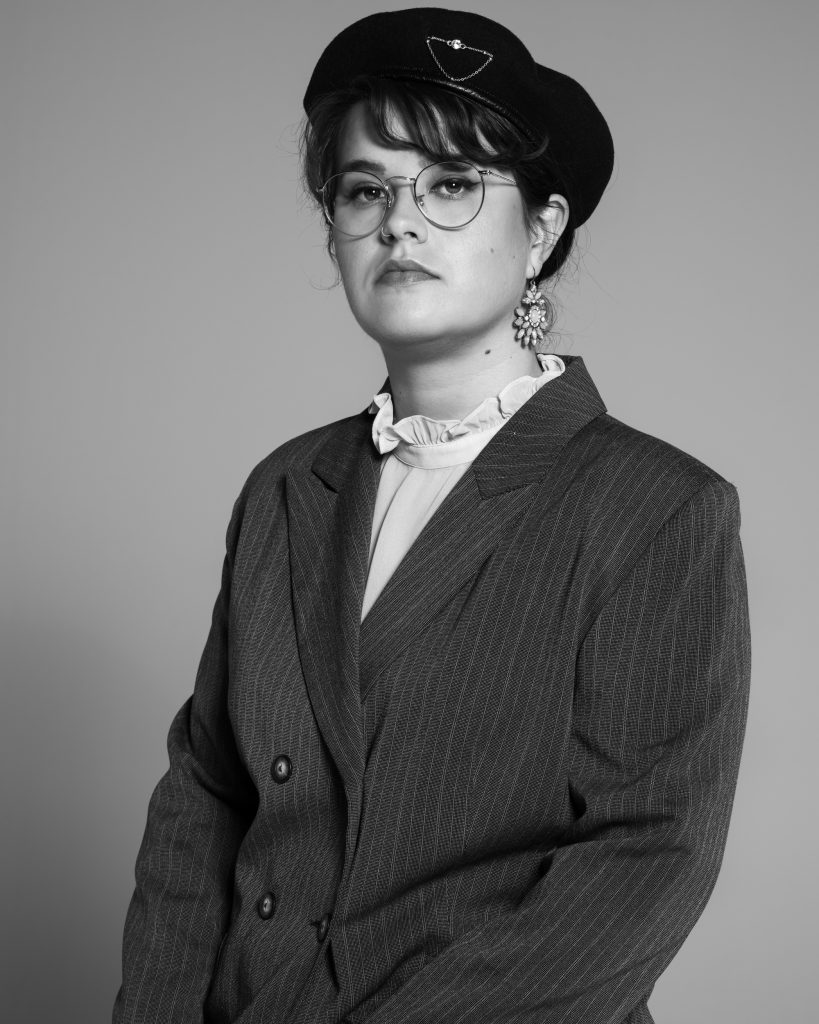
name
Elma
born in
Žepa
lives in
Utrecht
My father was in a Serb concentration camp. My grandfather died in Srebrenica. After the fall of Žepa, my mother almost left us in the woods, my brother and me. She was so exhausted that she could no longer walk. I don't often discuss it with my parents. I don't want to dig into the pit of their suffering. But I incorporate the fragments they tell me into my art. And I keep it colorful, lighthearted even. I bring out the gems from everything my parents and so many others have experienced.

name
Adnan
born in
Srebrenica
lives in
Zevenaar
I was born on July 2. When the city fell I was nine days old. My uncle and my grandfather have been murdered and their bodies have still not been found. My parents like it that I participate in this. It is almost a duty. I don't forget where I'm from and I'm not ashamed of it. In this country, which has given me so many great opportunities, people are also allowed to see what I carry with me. I am not afraid of anything.
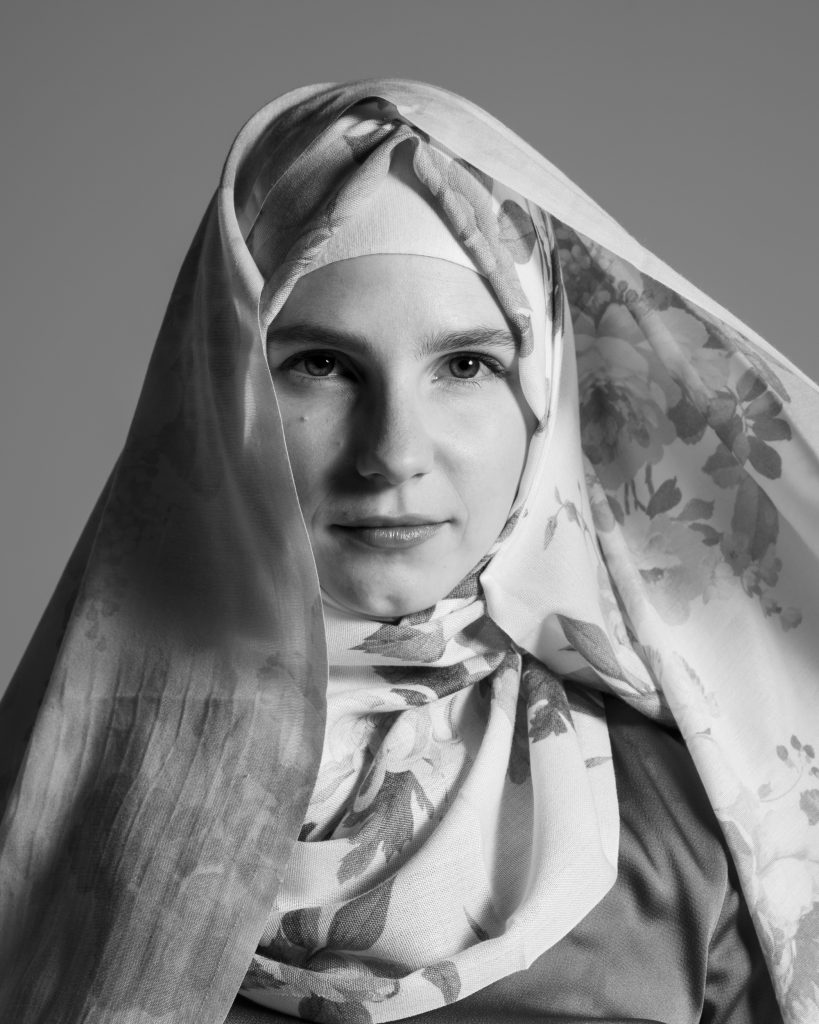
name
Merima
born in
Amsterdam
lives in
Amsterdam
My family escaped through the woods. My father-in-law was murdered in Srebrenica. The war continues to haunt us. Even after 25 years, not all missing persons have been found. Every year we bury someone who has been identified. The Dutch government offers hardly any recognition. Srebrenica is not in the textbooks. This affects me. The war and the horrors it brought are tucked away. Dutchbat has failed, just admit it.
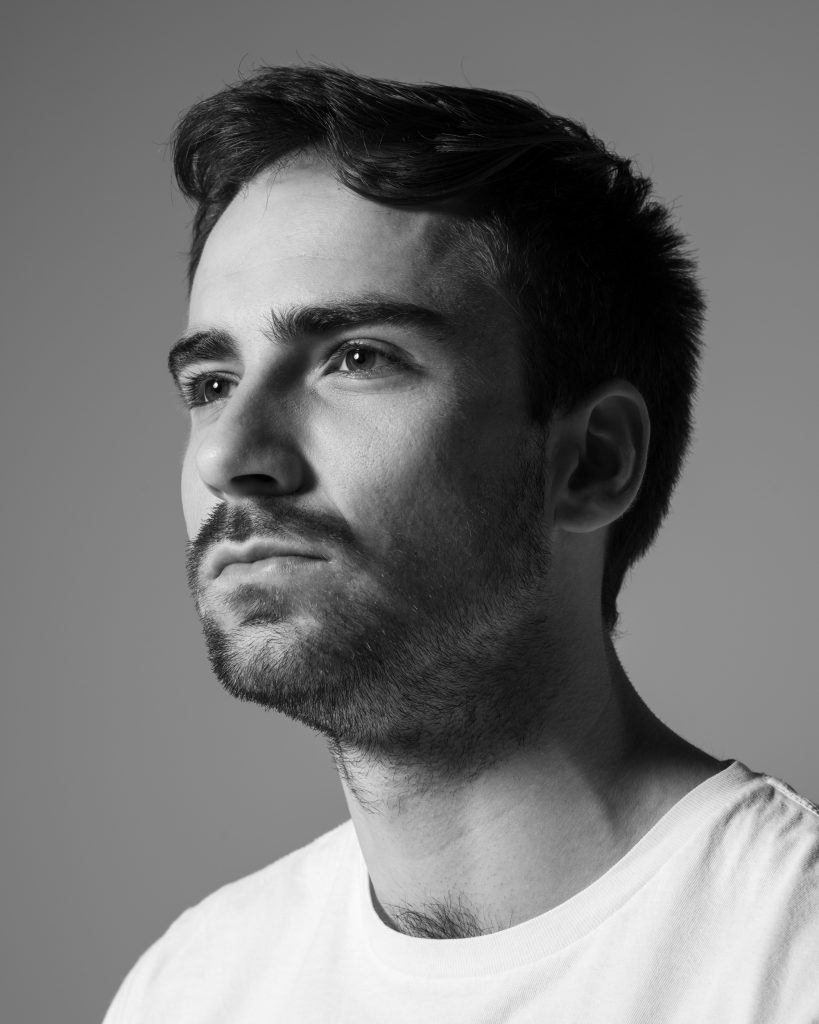
name
Petar
born in
Utrecht
lives in
Utrecht
The Netherlands and Bosnia have a violent history with each other. I am a product of both. My father is a Bosnian Croat who met my Dutch mother here. Our families are very close. My mother's brother is now with my father's sister. I have the best of both: pride and discipline, without any blinkers. I ask for this openness with this cause. My last name is not Markotik. Everyone knows how to pronounce Rakitić and Modrić at the World Cup. I don't call someone named Niels van de Boom Niels Boom. It's not that hard. It’s a matter of wanting to.
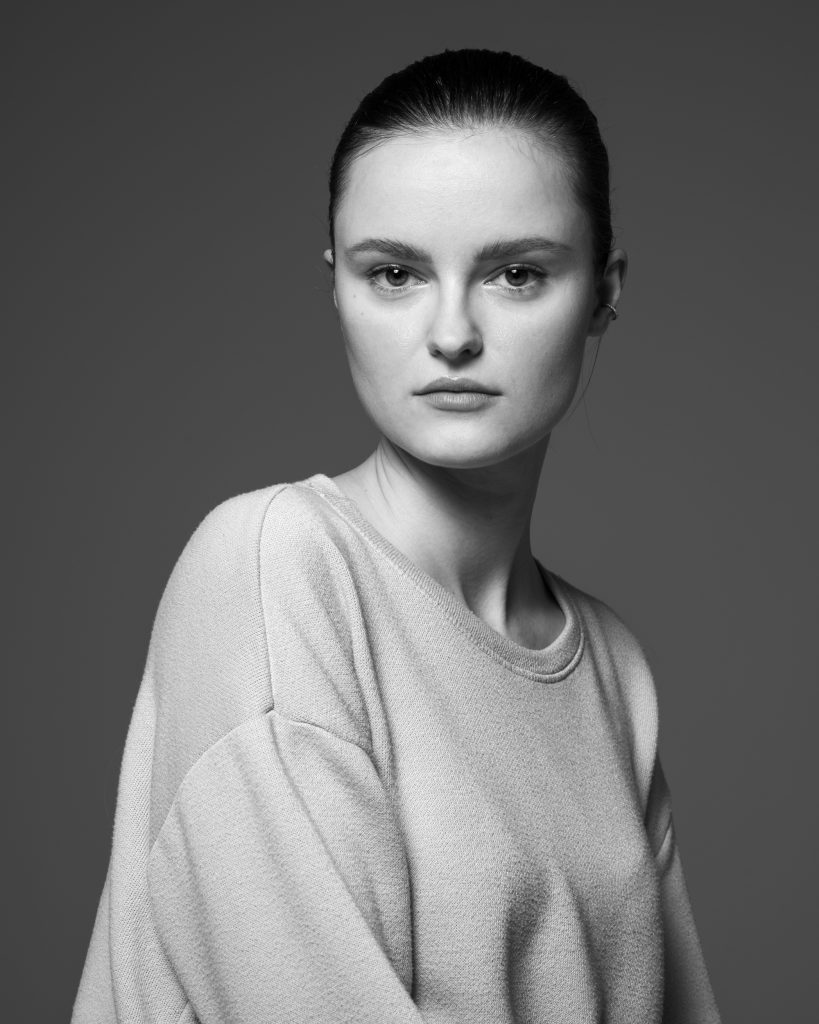
name
Minela
born in
Srebrenica
lives in
Krimpen aan den IJssel
Just before the fall of Srebrenica she saw a Dutchbatter in the camp, he was not older than 22. My mother remembers how much pity she felt for that boy, who was just crying. While she was carrying two children. I think: how, how can you put yourself in the position of another at that moment? When I see those war images my blood starts to boil. From an early age on I can’t stand injustice. At school I made sure it was brought up. But Srebrenica did not appear in the history books. That is why I hope that this cause will also bring to bear on something in education.

name
Nedžad
born in
Srebrenica
lives in
Bussum
Even though I was only born there, I still feel that strong connection. One day I will live there. Sooner rather than later. My goal is to get people to return to Srebrenica. To create employment opportunities. Because otherwise we have lost. I strongly believe that I will succeed. The city is almost dead, but there is a very small flame. And that gives me hope. One day that city will be ours again.

name
Hana
born in
Purmerend
lives in
Volendam
A war has no winners. Only losers. My father has lost his brother. But my parents did not pass any pain down on to me. But they did make me realize where I come from. As I grow older I feel more and more Bosnian. I value the beautiful customs and traditions. The people are warm. They’re happy with small things. I am really a family person. I will also teach my children Bosnian. And if I get the chance, I might live there, to give something back.

name
Adnan
born in
Rotterdam
lives in
Rotterdam
We are the invisible migrants. We are absorbed in the crowd. That is the Bosnian in us: adapting to the ruling party. My father has clear views indoors, but outside he is more careful. While as a Rotterdammer I have my heart on my sleeve. That's why I say it honestly: Srebrenica has become a political game. A business model. Some benefit, the others watch. This cause is a counterbalance. To create awareness not only of Srebrenica, but of everything that still goes wrong in the world: African Americans, the Rohingya, the Uyghurs.
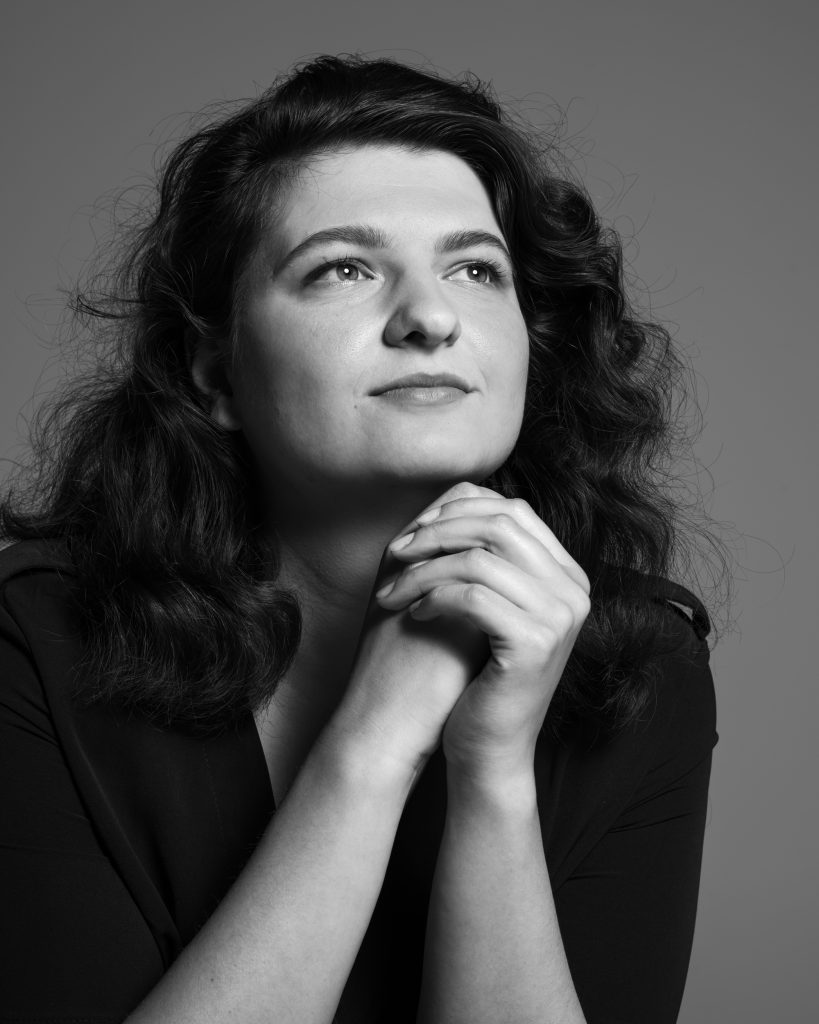
name
Azra
born in
Rotterdam
lives in
Zuidland
My parents came here without knowing anyone. They did not know how their family was during the war. Here they had a deaf child. But they never chose the victim role. They taught themselves and my sister sign language. They put so much energy into it. That is why I am where I am. And I am also there for them, when they start telling their stories. Which I will pass on to my children. I struggled with my three identities: Bosnian, Dutch and deaf. But like my parents, I choose to always make the most of it. I want to communicate with people and I am getting better at it.
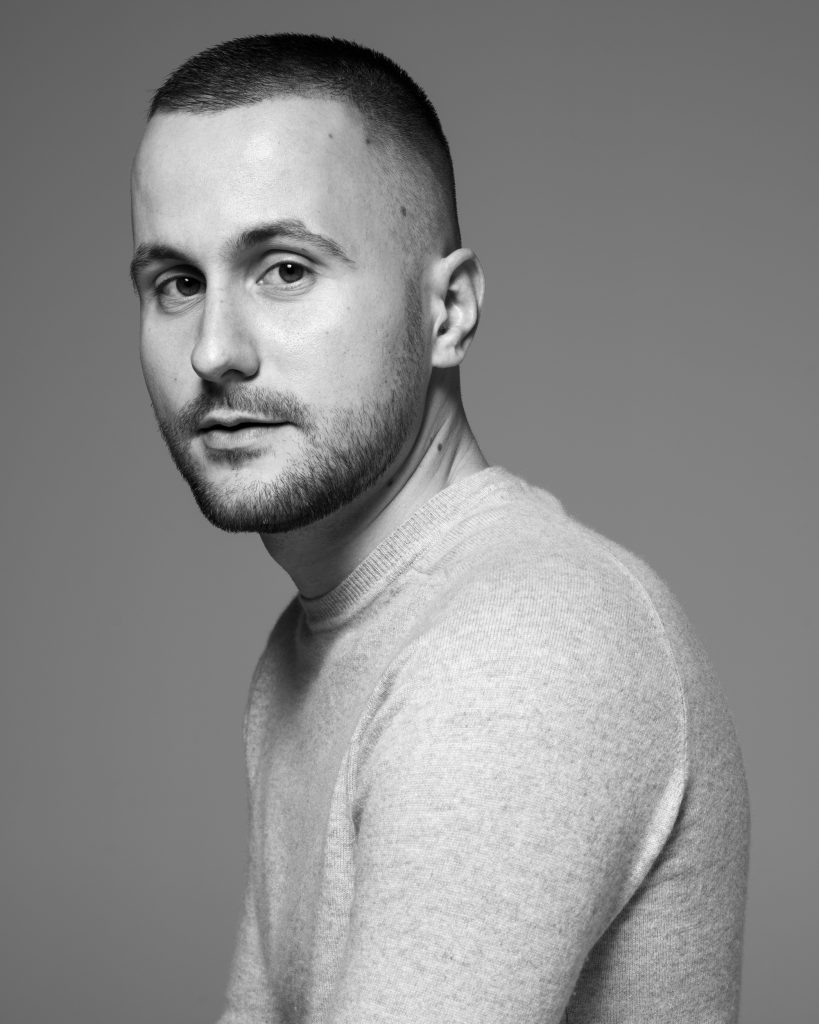
name
Adnan
born in
Den Haag
lives in
Gorinchem
I work well with the Serbs in my company. But it is impossible for them to recognize the genocide. They know it, but don't want to say it. I myself have been spending every holiday in Bosnia for years, to find my grandmother's body. She died during the war in Srebrenica, but the question remains where? I want to find her before my mother dies so she can close the book. I remember my grandmother every day. With this cause I want to ensure that all those others also know what happened there, without having to look it up.
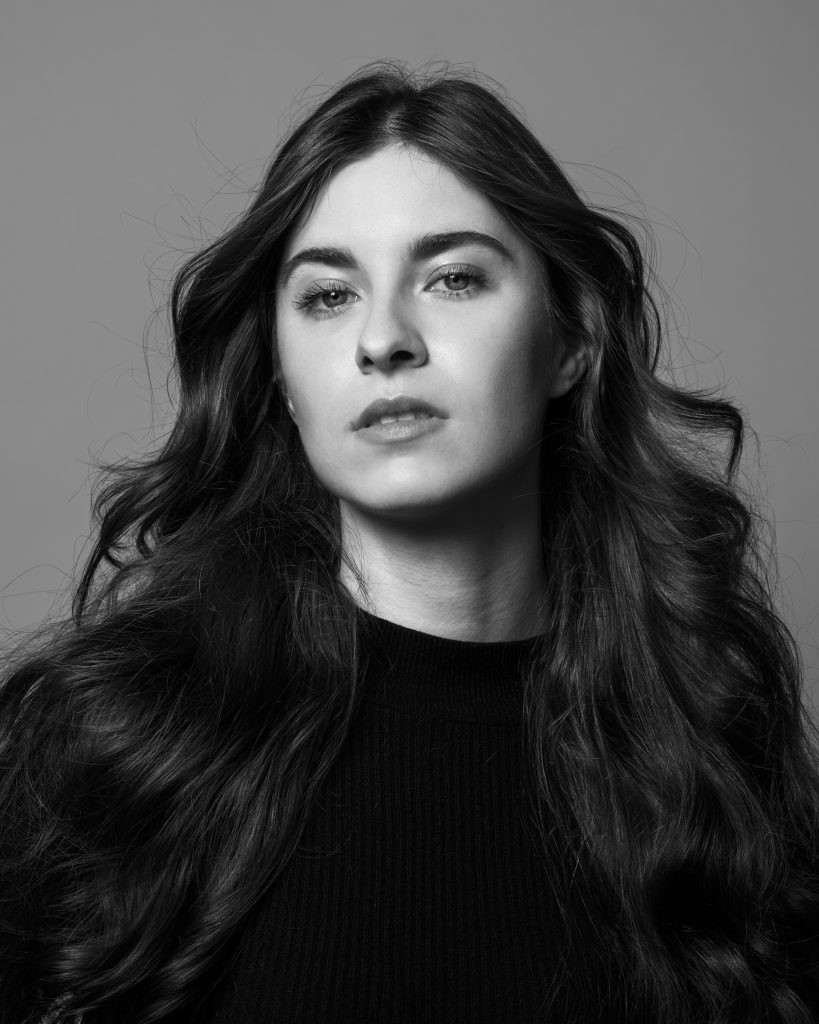
name
Amra
born in
Rotterdam
lives in
Rotterdam
Even though I am a white migrant, I have faced discrimination. Because of my name, because of my religion. And my parents fled from it. Later, a mass grave was found in Prijedor where all the higher educated, the doctors, the intellectuals, lay in layers. That inspired me to learn and speak out about oppression and social inequality. By doing so I can show solidarity with visible minorities, who are not seen as Dutch, even if they have lived here for generations. The war taught me to be aware of how we talk about people from different backgrounds. Because words have an impact. Positive or negative.

name
Elvir
born in
Srebrenica
lives in
Arnhem
I wear my father's ring, who died in Srebrenica. And a cigarette box which was found near his body, in which he had scratched my name. I have that too. Every year I visit his grave at the large cemetery in Potočari. And then I figure out what I would do if I had millions. Because someday, if we are all stronger and financially independent, we can change the country. I would start with the infrastructure. I’d also build asphalt roads around Srebrenica, for all those villages in the mountains. I want to ensure that Bosnia is accessible to everyone.

name
Lejla
born in
Srebrenica
lives in
Den Haag
My parents, who have experienced Srebrenica, still bear the pain. Also because it is not part of Dutch history. My idealistic side says: recognition would ease that pain. My realistic side says: that is not going to happen. My parents gave up everything. That's why I did two studies at the same time, sat on student committees and worked besides everything. My life has to make up for what they have lost. And the story has to be told. Otherwise, the generation that does not learn anything about it will soon be in the cabinet - and fatal decisions will be made again.
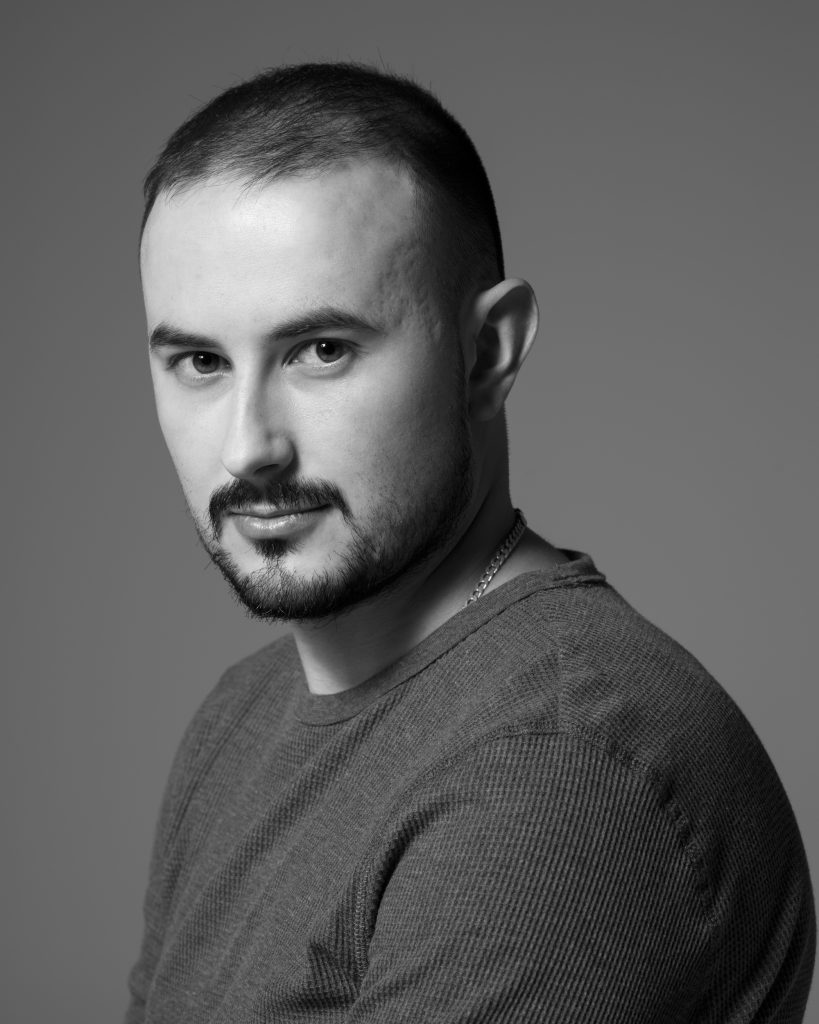
name
Amil
born in
Almelo
lives in
Zoetermeer
My family is from Mostar. That's a big city. But Srebrenica? That is much smaller. And more than 8,000 men have been murdered. I have no words for that. Bodies have still not been found. And the worst part is: those people were innocent. We are here for them. They can no longer speak up. But we do. And our generation will pass on to the following generation: ‘Your grandparents went through the war. Do not forget it.'

name
Arijana
born in
Tuzla
lives in
Vught
Every year, all family members from all over Europe return to Sarajevo. A coffee and a pita in the morning, lovely. But for my parents, everything is still before, during or after the war. My father was in a camp and was severely abused. In the Netherlands, he was rejected for his panic attacks. My mother has very sad days as well. As a child, my brother and I had a hard time. We didn't understand why they did it that way. Now we do. So I am also here to show my parents that I will never forget what they and so many others went through.
On July 11, 2020 the Srebrenica genocide was commemorated in a ceremony at the Plein in The Hague. For this day, Srebrenica is Dutch History contributed a temporary monument to the formal program, which was developed by the preparatory committee of the Srebrenica commemoration. The monument was on display for three weeks after which it started its journey through other cities in The Netherlands.
Visit the Temporary monument here:
– 11 – 31 July: het Plein in Den Haag
– 6 September – 19 October: Framer Framed in Amsterdam
– 19 November – 14 January: Kunstfort bij Vijfhuizen
July 11th, 2020 marks the 25th anniversary of the Srebrenica genocide. IDFA, at the invitation of and together with our collective, has put together a film program that explores this tragic history from different social and cultural perspectives. It is a history that cannot be considered remote or disconnected; Srebrenica is a critical part of the Netherlands’ contemporary history too.
Eastern Neighbours Film Festival presents a selection of short, impressionistic documentaries, directed by four female directors from the Balkan region. The selection includes early work from renowned filmaker Jasmila Žbanić (Grbavica) and films made by new and upcoming talent.
Bosnian Girl is a collective consisting of four young women: architect Arna Mačkić, film director Ena Sendijarević, theatre director Daria Bukvić, policymaker Emina Ćerimović. We joined forces to reach an inclusive narrative and commemoration of the Srebrenica genocide in the Netherlands.

The name of the collective refers to the internationally renowned artwork Bosnian Girl by the Bosnian artist Šejla Kamerić, whose artwork inspired the development of the photo series of Srebrenica is Dutch history. On the artwork you can see a photo of herself, taken by photographer Tarik Samarah, with over it a graffiti text written by an unknown Dutchbat soldier on the wall of the barracks in the UN base in Potočari where Dutch soldiers were stationed. “No teeth…? A mustache…? Smell like shit…? BOSNIAN GIRL!”
‘Het was een schok om te merken hoezeer Srebrenica in me zit’ – NRC
Op 11 juli is het precies 25 jaar geleden dat de genocide van Srebrenica plaatsvond. Dat mag niet vergeten worden, vindt het collectief Bosnian Girl. Deze donderdag beginnen ze met een campagne.
‘Srebrenica’ is ook deel van ónze geschiedenis, zeggen deze Bosnisch-Nederlandse vrouwen – de Volkskrant
De jonge vrouwen van Bosnian Girl willen blijven informeren over Srebrenica (en laten zien dat Bosnische vrouwen niet weerloos zijn).
Collectief Bosnian Girl: ‘Srebrenica hoort bij onze geschiedenis’ – het Parool
Vier Bosnisch-Nederlandse vrouwen vragen als collectief Bosnian Girl structurele aandacht in Nederland voor de genocide in Srebrenica.
Ook Srebrenica is Nederlandse geschiedenis, zeggen deze jongeren – Brandpunt plus
“Hoe kan het dat een buurman opeens de nek van zijn buurman omdraait, terwijl ze daarvoor een goede verstandhouding hadden? Dat gebeurde in de Bosnische oorlog.”
De aandacht voor Srebrenica mag niet vervagen – Kennisplatform Integratie & Samenleving
‘Srebrenica is Nederlandse geschiedenis’. Deze boodschap wil het collectief Bosnian Girl, bestaande uit Emina Ćerimović, Arna Mačkić, Ena Sendijarević en Daria Bukvić, verankeren in het collectieve geheugen van Nederlanders. Begin juli dit jaar lanceerden zij de campagne Srebrenica is Nederlandse geschiedenis. 25 jaar na de genocide op 8.373 moslimmannen en –jongens. KIS sprak met Emina Ćerimović over de campagne, het belang van hun boodschap en over hoe Srebrenica herdacht moet worden.
The Netherlands still struggling with dark chapter in Srebrenica – Al Jazeera English
Thousands of men and boys killed in Bosnia were under the protection of Dutch UN troops. The Serb forces used bulldozers to throw the bodies in numerous mass graves. Their remains are still being searched for. About 30,000 Bosniak women and children were deported in just two days. Thousands of women and girls were raped. But most young people in the Netherlands have no idea about what happened. Al Jazeera’s Step Vaessen reports.
Bosnian Girl: Srebrenica je dio nizozemske historije – Oslobođenje
Kolektiv Bosnian Girl čine uspješne Bosanke i Hercegovke u Nizozemskoj koje neće dozvoliti da se genocid u Srebrenici zaboravi
Generatie ’95 – Argos
Ze zijn tijdens, of vlak na een oorlog geboren die ze niet hebben meegemaakt. Getogen in Nederland, belichamen zij zowel de Nederlandse als de Bosnische geschiedenis. Hoe gaat de generatie ’95 om met hun dubbele identiteit en welke rol speelt de oorlog, 25 jaar na Srebrenica, in hun dagelijks leven?
Ik heb het mooiste meisje uit het azc nooit meer gezien – Massih Hutak in het Parool
Olja was met haar moeder gevlucht uit Bosnië. Haar vader was vermoord tijdens de genocide die op 11 juli dit jaar precies 25 jaar geleden is. Pas veel later zou ik leren dat het bloedbad van Srebrenica, dat werd aangericht door Servische troepen, duizenden moslimjongens en -mannen het leven kostte.
25 Jaar na Srebrenica-genocide: “ik zoek nog elk jaar naar het lichaam van mijn oma” – FunX
Besef, de grootste genocide in Europa na de Tweede Wereldoorlog vond nog maar 25 jaar geleden plaats in het Bosnische plaatsje Srebrenica. Tijdens die genocide werden binnen enkele dagen meer dan 8000 moslimmannen en -jongens vermoord. Tot op de dag van vandaag wordt er nog gezocht naar lichamen. Ook voor de Nederlandse geschiedenis is dit een zwarte bladzijde, aangezien Nederlandse troepen de Bosnische enclave moesten beschermen en daarin faalden.
Fotograaf Robin de Puy fotografeerde 25 25-jarige Bosnische jongeren, 25 jaar na de genocide in Srebrenica – LINDA.
Meer dan achtduizend Bosnische (minderjarige) mannen werden daar in 1995 vermoord. Ter nagedachtenis fotografeerde De Puy de jongeren en werden zij geïnterviewd door schrijver Chris Keulemans.
The Netherlands Looks Again at its Controversial Role in Srebrenica – Balkan Insight
Young Bosnian-Dutch activists are campaigning to raise the low level of public knowledge about the 1995 Srebrenica genocide and the Netherlands’ role in the UN peacekeeping mission that did not prevent the mass killings of Bosniaks.
Is Srebrenica Nederlandse geschiedenis – De Groene Amsterdammer
Bosnian Girl, het nieuwe collectief van vier prominente Nederlands-Bosnische vrouwen, lanceert deze week de campagne Srebrenica is Nederlandse geschiedenis. Niets tegen in te brengen, zou je zeggen.
Bosnië door de ogen van de generatie ’95 – NPO Radio 1 Bureau Buitenland
25 jaar geleden voltrok zich bij Srebrenica de grootste genocide in Europa sinds de Tweede Wereldoorlog. Mensen verlieten tijdens de oorlogen op de Balkan huis en haard en vluchten naar andere oorden. Oorden als Nederland, waar inmiddels een generatie Nederlandse-Bosniërs is opgegroeid. Ze zijn tijdens, of vlak na een oorlog geboren die ze niet hebben meegemaakt.
NOS – 25 jaar na Srebrenica
Verslag van de herdenkingen in Bosnië en Den Haag van de val van Srebrenica, afgewisseld met reportages over overlevenden en getuigen van het drama.
Srebrenica is Nederlandse geschiedenis – IDFA
Deze week wordt er volop stilgestaan bij de genocide van Srebrenica, op 11 juli 25 jaar geleden. Waar in verschillende media de gebeurtenissen met name vanuit het perspectief van Dutchbat worden herdacht, heeft IDFA op uitnodiging van en samen met het collectief Bosnian Girl een filmprogramma samengesteld waarin deze tragische geschiedenis vanuit verschillende betrokkenen wordt belicht. Een geschiedenis die we niet kunnen loskoppelen of beschouwen als iets dat ver van ons vandaan staat; Srebrenica is immers Nederlandse geschiedenis.
Srebrenica is Nederlandse geschiedenis – VPRO Mondo
Het is dit weekend precies 25 jaar geleden dat de genocide in Srebrenica plaatsvond. Hoewel deze gebeurtenis elk jaar wordt herdacht op het Plein in Den Haag, merkte het collectief Bosnian Girl op dat de aandacht verslapte. Dus zetten Daria Bukvić (theaterregisseur), Arna Mačkić (architect), Ena Sendijarević (filmmaker) en Emina Ćerimović (beleidsmedewerker) een tijdelijk monument op.
Nida in gesprek! #Srebrenica
Met Emina Ćerimović en Adnan Delić
In de sporen van Srebrenica – Mister Motley
De door de Verenigde Naties veilig verklaarde enclave Srebrenica viel in 1995. Als gevolg hiervan werden 8372 Bosnische Moslims slachtoffer. Dit jaar is het 25 jaar geleden dat deze genocide plaatsvond. Framer Framed staat hierbij stil met de tentoonstelling from what will we reassemble ourselves.
Dit fotoproject in Amsterdam helpt de genocide van Srebrenica te verwerken – Trouw
In een lange rij langs de Amsterdamse kade kijken ze je aan: 25 jongeren, gefotografeerd in zwart-wit, afgedrukt op enorme panelen. Het zijn allemaal Bosnische Nederlanders van 25 jaar oud. Op de kaartjes eronder staan hun voornamen en geboorteplaatsen: Assen, Amsterdam, Prijedor, Srebrenica.
On the representation of violence – Metropolis M
The current exhibition From what will we reassemble ourselves at Framer Framed centers on the representation of the genocide that occurred in Srebrenica and its surroundings in Bosnia and Herzegovina 25 years ago, but also focuses on the more structural question of the representation of graphic violence.
Via Kunstfort bij Vijfhuizen naar gerechtigheid voor Srebrenica – HC Nieuws
Gerechtigheid in de geschiedschrijving, een monument en geld. Die drie doelen streeft het collectief Bosnian Girl na. Deze maand gebeurt dat vanuit Vijfhuizen, waar op het forteiland nog tot 14 januari het tijdelijke monument Srebrenica is te zien. De reacties zijn geïnteresseerd en ontroerd.
